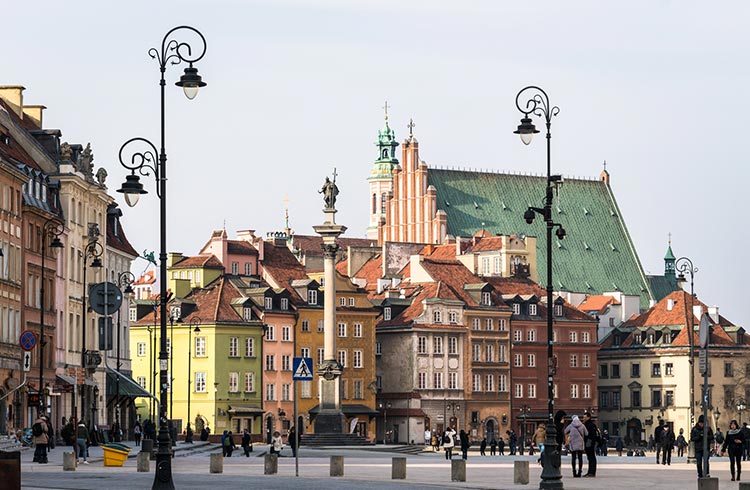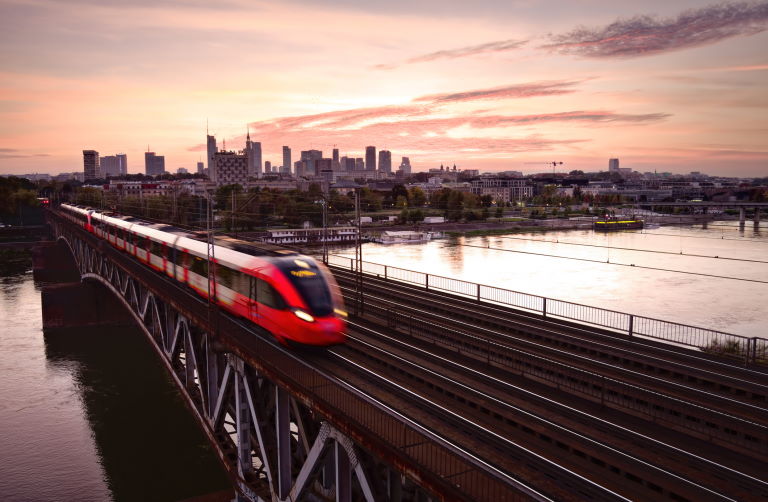Driving in Poland: 4 Tips For Traveling Around Safely
Many of Poland's roads are narrow and potholed – here's everything road-tripping travelers need to know before taking to the streets in a rental car.
 Photo © Getty Images/Wild Europe/ Ascent Xmedia
Photo © Getty Images/Wild Europe/ Ascent Xmedia
Hiring a car and driving around Poland is the best way to travel independently.
However, many visitors claim Poland is one of the worst places to drive in Europe. Funnily enough, there's a lot of competition for the lowest rank on Europe's worst roads list, and Poland hasn't made it to the bottom, but it's close.
Poland has some of the worst roads, and there are a large number of drivers who do not meet accepted European driving skill levels.
Don't let that deter you from driving your way around to see the sights – here are our top tips for road safety in the country.
- What Makes Poland's Roads so Bad?
- Things to Consider Before Renting a Car
- What's the Legal Alcohol Limit for Drivers in Poland?
- Two Things to Keep on at All Times While Driving in Poland
1. Traffic, narrow and potholed roads in Poland
There has been a substantial increase in the number of cars on Polish roads. While the major highways in Poland are in good condition and well maintained, it's the rural roads you need to be aware of.
Driving, especially after dark, is hazardous due to narrow and poorly lit roads. Be aware of road works that may cause detours or delays, especially during the summer months of June, July and August. Stay alert and keep your eyes peeled for pedestrians and cyclists at night in poor visibility.
Poland is a major east-west transit route for heavy vehicles such as trucks (which is one reason for the poor road quality), so drive carefully around larger vehicles, never try to overtake unless it is safe to do so, and keep a safe distance from trucks at all times.
Slow-moving agricultural vehicles (and horse dawn vehicles) are common in rural areas, even on main roads. Be patient if you get stuck behind any of these and only try to overtake if it is safe to do so.
2. Things to consider before renting a car
Here are a few things to consider before you hit the open roads in Poland.
Check that your rental car has a warning triangle, fire extinguisher and reflective jacket. Hefty on-the-spot fines can be issued if you do not have these essential items with you in the car.
Expect delays - long delays - during summer on the roads leading to the major tourist destinations, like Gdansk, Zakopane or Lake District.
You must carry original vehicle registration papers, ownership documents and insurance papers at all times. This is a legal requirement. They will be asked for if you are stopped by the police and, in particular, when crossing borders. If you do not have these papers when stopped by the police, they have the right to impound your vehicle and charge you for this.
If you have valuables in your car, take them with you, or park in paid guarded lots to be sure your belongings are safe. Car theft and break-ins have been reported at popular summer destinations such as Gdansk or Sopot.
Be aware there have been cases where vehicles with foreign number plates are stopped by gangs posing as policemen, particularly in rural and tourist areas such as the Polish lake district. Ask for identification or to see an official badge if you are unsure.
Pay close attention to anyone indicating you should pull over or that something is wrong with your car; you should drive until you find a safe place, like a gas station or supermarket to check whether there is actually a problem with your car.
There have been incidents of thieves opening or breaking passenger-side doors and windows in slow or stopped traffic to take purses or briefcases left on the seat beside the driver. This is more common in Warsaw or Gdansk, where traffic is really bad.
3. The legal alcohol limit for drivers in Poland
Never drink and drive in Poland. There is zero tolerance for driving under the influence of alcohol. The blood alcohol limit while driving is 0.02% BAC. If you drive and have been drinking (even one unit of alcohol) you can be charged. Offenders can be imprisoned for up to two years if they are found with 0.05% BAC. Alcohol consumption is frequently a contributing factor in accidents, so if you're drinking, get yourself a plan B to get back to your accommodation safely.
If an accident results in injury or death, penalties for drivers involved are severe, and can include imprisonment from six months to eight years or, in the case of drivers under the influence of alcohol or drugs, up to twelve years.
4. Seat belts and driving lights
You must drive with your headlights on at all times, day and night.
Seat belts are compulsory in both the front and back seats, and children under the age of 10 are prohibited from riding in the front seat.
Use of phones while driving is prohibited, unless you are connected to the car via Bluetooth and are not using your hands to operate the phone. Fines for violating laws against the use of mobile phones while driving are significant. If you need to use your mobile phone while on the road, stop your car in a designated parking area and make your call.
Should you breakdown or end up in a traffic incident, call 112. This service is available across Europe, with English-speaking operators who will put you in touch with emergency services in Poland, if your Polish skills are a bit rusty.
Related articles
Simple and flexible travel insurance
You can buy at home or while traveling, and claim online from anywhere in the world. With 150+ adventure activities covered and 24/7 emergency assistance.
Get a quote


No Comments